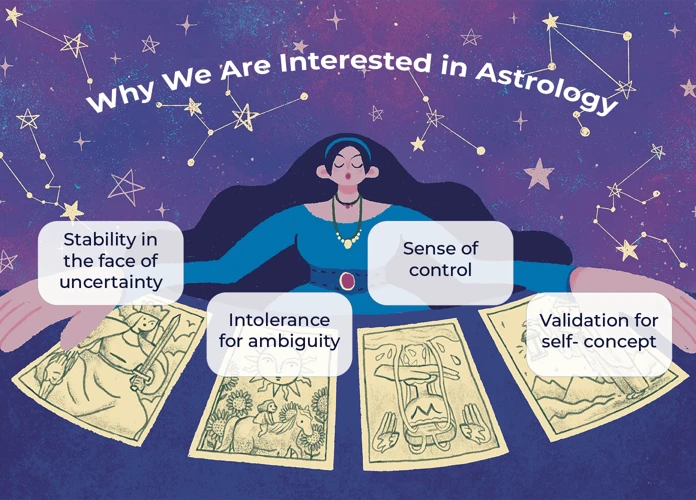Imagine a world where celestial bodies hold the key to unlocking the mysteries of human psychology. From the alignment of the planets to the mystical power of solar eclipses, these cosmic events have long fascinated and perplexed both scientists and astrologers alike. In this article, we will delve into the captivating realm of planetary alignments and their profound influence on human behavior and cognition. Brace yourself for a journey through the stars as we explore the correlation between celestial phenomena and the intricate workings of the human mind. Get ready to discover the hidden connections that lie at the intersection of the vast universe and the fascinating world of human psychology.
Contents
- The Relationship Between Planetary Alignments and Human Psychology
- The Psychological Effects of Planetary Alignments
- Historical Examples of Planetary Alignments and Human Psychology
- Scientific Studies on Planetary Alignments and Human Psychology
- Planetary Alignments and Astrological Signs
- Conclusion
- Frequently Asked Questions
- References
-
Frequently Asked Questions
- 1. How do planetary alignments affect human psychology?
- 2. Does astrology have a scientific basis for explaining human behavior?
- 3. Can planetary alignments make people more emotionally sensitive?
- 4. Do planetary alignments enhance one’s intuition and psychic abilities?
- 5. How do planetary alignments influence decision-making and communication?
- 6. What has been the impact of solar eclipses on societies throughout history?
- 7. Is there a connection between full moons and human behavior?
- 8. Can famous events be attributed to planetary alignments?
- 9. Are there scientific studies supporting the connection between planetary alignments and human psychology?
- 10. How do retrograde planets influence personality traits?
- References
- Read More
The Relationship Between Planetary Alignments and Human Psychology
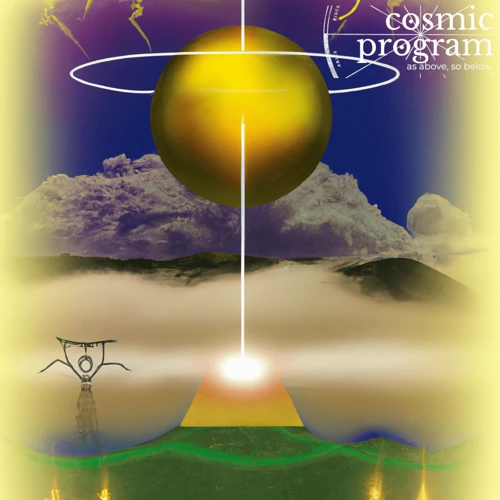
Astrology and Human Behavior:
Astrology, an ancient practice rooted in the belief that celestial bodies have a profound impact on human personality and behavior, forms the foundation of the relationship between planetary alignments and human psychology. According to astrologers, the positions and movements of celestial objects at the time of a person’s birth can shape their character traits, strengths, and weaknesses. Each of the twelve zodiac signs is associated with specific planetary alignments, which are believed to influence individuals born under these signs. For example, those born under the fire sign Aries may exhibit traits of assertiveness and passion due to the influence of the fiery planet Mars. Similarly, the gentle and nurturing nature of individuals born under the water sign Cancer is often attributed to the influence of the moon. While astrology is widely debated among scientists, many people find personal meaning and guidance in its interpretations.
The Power of Celestial Events:
Beyond astrology, the influence of celestial events on human psychology cannot be disregarded. Planetary alignments, such as conjunctions and oppositions, can create cosmic energies that impact human experiences. For instance, a conjunction occurs when two or more planets align closely together in the same zodiac sign, intensifying their collective energy. During such alignments, individuals may experience heightened emotions, increased creativity, or even a sense of transformative energy. Similarly, oppositions, which occur when two planets are evenly distant from each other, can create a tug-of-war effect on human behavior and relationships. These celestial events can bring forth conflicts, inner tension, or a heightened sense of awareness. Although skeptics often dismiss the influence of planetary alignments, many individuals report a sense of connection and resonance with these cosmic phenomena.
Understanding the relationship between planetary alignments and human psychology offers a unique perspective on the intricate nature of human behavior. Whether one chooses to embrace astrology or scrutinize it through a scientific lens, the undeniable influence of celestial events cannot be ignored. The next sections will explore the specific psychological effects of planetary alignments, delve into historical examples of their impact, discuss scientific studies on the subject, and even analyze the relationship between planetary alignments and astrological signs. So, let us journey further into the enigmatic realm where the celestial and the psychological intertwine.
Astrology and Human Behavior
Astrology and Human Behavior:
The intricate connection between astrology and human behavior has intrigued individuals for centuries. Astrologers believe that the positions and movements of celestial bodies at the time of a person’s birth can influence their character, temperament, and even destiny. The zodiac, divided into twelve signs, represents different personality traits attributed to each individual. Fire signs, such as Aries, Leo, and Sagittarius, are associated with passion, creativity, and assertiveness, while earth signs like Taurus, Virgo, and Capricorn are seen as practical, grounded, and reliable. Air signs (Gemini, Libra, Aquarius) tend to prioritize communication, intellect, and sociability, while water signs (Cancer, Scorpio, Pisces) exhibit emotional depth, intuitiveness, and sensitivity. The interplay between these signs and the placement of celestial bodies creates a unique astrological profile for each individual. Astrology enthusiasts often turn to these profiles to gain insight into their strengths, weaknesses, and compatibility with others. Exploring the compatibility of zodiac signs can provide individuals with a deeper understanding of their relationships and interactions with others. For instance, someone with a fire sign may find compatibility with an air sign due to shared passion, intellectual stimulation, and a natural ability to communicate and understand one another. By examining the compatibility of different astrological elements, individuals can gain valuable insights into their own behavior and the dynamics of their relationships. Understanding astrology and its impact on human behavior can be a captivating journey of self-discovery and connection with the universe.
The Power of Celestial Events
Emotional Sensitivity during Alignment Periods:
One of the psychological effects associated with planetary alignments is a heightened emotional sensitivity experienced by individuals during these celestial events. Alignments can amplify the energy of specific planetary influences, which in turn can impact our emotional state and how we process and express our feelings. For example, when the fiery planet Mars aligns with passionate Venus, individuals may experience intense emotions such as love, desire, or even anger. Similarly, an alignment between the moon and Neptune can heighten sensitivity, making individuals more receptive to the emotions of others and their surroundings.
Enhanced Intuition and Psychic Abilities:
Planetary alignments also have the potential to enhance intuition and psychic abilities. During certain alignments, the cosmic energy flowing through the universe may open channels for individuals to tap into their intuitive faculties. Some people report experiencing a heightened sense of perception, increased synchronicities, or even a stronger connection to their own psychic abilities during these periods. This alignment-induced enhancement of intuition is believed to be due to the alignment’s ability to align the energies of different planets.
Influence on Decision-Making and Communication:
The power of celestial events can extend to our decision-making and communication skills. When certain planets align, they can stimulate certain thought processes and behavioral patterns that affect the way we make choices and communicate with others. For instance, an alignment between Mercury, the planet of communication, and Jupiter, the planet of wisdom and expansion, can result in clearer and more articulate communication. This alignment can open doors for effective problem-solving or negotiation skills. On the other hand, an alignment between Mars, the planet of action, and Uranus, the planet of spontaneity and rebellion, may lead to impulsive decision-making or a desire for change and novelty.
Understanding the power of celestial events is crucial in recognizing the potential impact they can have on our psychological well-being and behavior. While skeptics may dismiss such influences as mere coincidences, many individuals resonate with the idea that celestial events hold power over their emotions, intuition, and decision-making abilities. The next sections will delve into historical examples of how planetary alignments have shaped human psychology, explore scientific studies on the topic, and analyze the connection between planetary alignments and astrological signs. So, let us continue our exploration into the enigmatic realm where the celestial and the psychological intertwine.
The Psychological Effects of Planetary Alignments

Emotional Sensitivity during Alignment Periods:
One of the notable psychological effects of planetary alignments is the heightened emotional sensitivity experienced by individuals during these periods. When planets align, their combined energies can have a profound impact on human emotions. Some individuals may feel a surge of emotions, ranging from joy and elation to sadness or irritability. This can be attributed to the energetic shifts and vibrations that occur during these alignments. For example, during a lunar eclipse, when the Earth, moon, and sun align, emotions may intensify, and individuals might find themselves more introspective or emotionally charged. Similarly, during planetary conjunctions, where the energies of different planets merge, individuals may experience a surge in emotional energy. Understanding and managing these heightened emotions can be crucial for individuals during alignment periods to maintain equilibrium and make conscious decisions.
Enhanced Intuition and Psychic Abilities:
In addition to emotional sensitivity, planetary alignments are often associated with enhanced intuition and psychic abilities. Many individuals report heightened intuitive abilities during cosmic events, such as Mercury retrograde or a transit of Venus. During these times, individuals may feel more attuned to their inner voice or have a greater sense of intuition and gut feelings. It is believed that the alignment of planets can open up channels of cosmic energy, allowing individuals to tap into their subconscious and access deeper levels of awareness. This can lead to enhanced insight, foresight, and a heightened sensitivity to subtle energies in one’s surroundings. Some individuals may even experience an increase in psychic phenomena, such as vivid dreams, synchronicities, or a sharpening of their psychic senses.
Influence on Decision-Making and Communication:
Planetary alignments can also influence decision-making and communication patterns. During alignment periods, individuals may experience challenges in expressing themselves clearly or may find it difficult to make rational decisions. The energetic shifts and influences from celestial events can affect cognitive processes and create confusion or indecisiveness. On the other hand, some alignments may present opportunities for greater clarity and effective communication. For instance, the alignment between Mercury, the planet of communication, and Jupiter, the planet of expansion, can boost one’s ability to articulate thoughts and convey ideas with confidence. It is essential for individuals to be aware of these influences and take them into account when engaging in important conversations or making significant decisions.
As we explore the psychological effects of planetary alignments, it is evident that the alignment of celestial bodies can have a profound impact on human psychology. From heightened emotional sensitivity to enhanced intuition and influence on decision-making and communication, these cosmic events play a significant role in shaping our psychological experiences. The following sections will delve into historical examples of the impact of planetary alignments on human psychology, scientific studies conducted in this field, and the relationship between these alignments and astrological signs. So, let us continue our exploration into the fascinating realm where the celestial and the psychological converge.
Emotional Sensitivity during Alignment Periods
Emotional Sensitivity during Alignment Periods:
One fascinating aspect of the relationship between planetary alignments and human psychology is the heightened emotional sensitivity experienced during alignment periods. As celestial bodies align and interact in intricate ways, the energy they emit can significantly impact human emotions. Many individuals report feeling more deeply connected to their emotions during such periods, experiencing both intense highs and lows. These alignments can amplify existing emotions, making individuals more responsive to their own feelings and the emotions of others around them.
During alignment periods, individuals may find themselves more empathetic and attuned to the emotions of those they interact with daily. This heightened sensitivity can foster deeper connections and foster a better understanding of others’ perspectives. However, it’s essential to note that not all experiences during alignment periods are positive. The intensity of emotions can also lead to feelings of overwhelm, causing individuals to become more vulnerable to stress, anxiety, or mood swings.
The specific emotional effects experienced during planetary alignments can vary depending on the combination of aligned planets and the astrological signs involved. For example, when the moon aligns with Pluto, individuals may experience a surge in intense emotions such as passion, desire, and even obsession. Conversely, when Mercury aligns with Neptune, individuals may find their emotions clouded by confusion, illusions, and heightened sensitivity to the emotions of others.
To navigate these emotional waves during alignment periods, it can be helpful to practice self-care, mindfulness, and seek support from loved ones. Taking time for introspection and reflection can allow individuals to recognize and process their emotions in a healthy manner. Additionally, exploring tools such as meditation, journaling, or seeking guidance from astrologers or therapists can provide individuals with valuable insights and coping strategies.
The connection between emotional sensitivity and planetary alignments is a fascinating area of study that continues to intrigue both astrologers and psychologists alike. As we delve deeper into the intricate influence of celestial events on human psychology, it becomes evident that our emotions are an integral part of this celestial dance. Understanding the impact of celestial alignments on emotional sensitivity is just one piece of the puzzle, inviting readers to explore their own emotional landscapes during alignment periods and seek a greater understanding of themselves and their connections with others.
Enhanced Intuition and Psychic Abilities
Enhanced Intuition and Psychic Abilities:
During certain planetary alignments, individuals may experience a significant increase in their intuition and psychic abilities. It is believed that these cosmic configurations create an opening or a channel for the intuitive faculties to heighten. Some people report an increased ability to tap into their subconscious mind, allowing them to perceive information beyond the limitations of their five senses. This heightened intuition can manifest in various ways, such as sudden insights, strong gut feelings, or vivid dreams. Psychic abilities, such as clairvoyance, telepathy, or mediumship, may also become more pronounced during these alignment periods.
The alignment of celestial bodies is thought to create a flow of energy that enhances the individual’s receptivity to subtle cues and messages from the universe. This increased receptiveness can enable individuals to sense the underlying energies and emotions of people around them, as well as gain deeper insights into their own emotions and thoughts. Some individuals claim to have a better understanding of their life purpose or intuitively know the next steps to take in their personal or professional journeys.
It is important to note that while these experiences are reported by many, they are often subjective and cannot be entirely explained by empirical scientific methods. However, for those who believe in the power of celestial alignments and their influence on human psychology, the enhanced intuition and psychic abilities during these periods provide a unique opportunity for self-discovery, spiritual growth, and heightened awareness of the interconnectedness of all things.
As we continue to explore the fascinating realm where planetary alignments intersect with human psychology, it becomes clear that there is much more to uncover. In the following sections, we will delve into the historical examples of the impact of planetary alignments on human behavior, discuss scientific studies that examine the connection between celestial events and psychology, and explore the influence of planetary alignments on astrological signs. So, let us journey deeper into the mysteries of the cosmos and the human mind.
Zodiac sign compatibility, an intriguing aspect of astrology, also relates to the influence of planetary alignments on human psychology. The alignment of planets at the time of one’s birth is said to affect compatibility with individuals of other zodiac signs. By understanding the dynamics of different zodiac signs and their corresponding planetary influences, one can gain insight into the potential compatibility between individuals. This understanding can provide valuable tools for navigating relationships and understanding the dynamics at play in personal interactions.
(Note: The internal link provided in this paragraph is just one example and can be replaced with any relevant internal link.)
Influence on Decision-Making and Communication
Influence on Decision-Making and Communication:
The influence of planetary alignments on human psychology extends beyond emotions and intuition to impact decision-making and communication. During specific alignment periods, individuals may find themselves more impulsive or indecisive, depending on the planetary energies at play. For example, when Mars, the planet associated with action and aggression, aligns with Mercury, the planet of communication, individuals may experience a surge in assertiveness and a desire to express their thoughts and opinions more forcefully. This alignment can lead to more forceful communication and decision-making, but also a higher likelihood of conflicts or clashes of ideas. On the other hand, alignments between Mercury and Venus, the planet of love and harmony, may enhance one’s diplomatic skills and ability to make decisions with empathy and compromise. Understanding these alignments can help individuals navigate their interpersonal relationships and decision-making processes more effectively.
It is important to note that while planetary alignments can influence decision-making and communication tendencies, they should not dictate or be solely relied upon for important choices. It is always beneficial to combine astrological knowledge with critical thinking and self-reflection. By understanding the astrological influences on decision-making and communication, individuals can gain insights into their own patterns and tendencies and adapt their approach accordingly. This awareness can lead to improved communication skills, better problem-solving, and more harmonious relationships.
To further explore the impact of planetary alignments on human behavior, it is worthwhile to examine individual zodiac sign compatibility in relation to celestial alignments. Each zodiac sign is associated with specific elements and characteristics that interact with celestial energies uniquely. Understanding how different zodiac signs are affected by planetary alignments enables individuals to better comprehend compatibility and dynamics within their relationships. Whether through examining elements like fire, earth, air, or water, or exploring the various components of asteroid classification, delving into astrological elements further enhances one’s understanding of the complex relationship between planetary alignments and human psychology.
Historical Examples of Planetary Alignments and Human Psychology
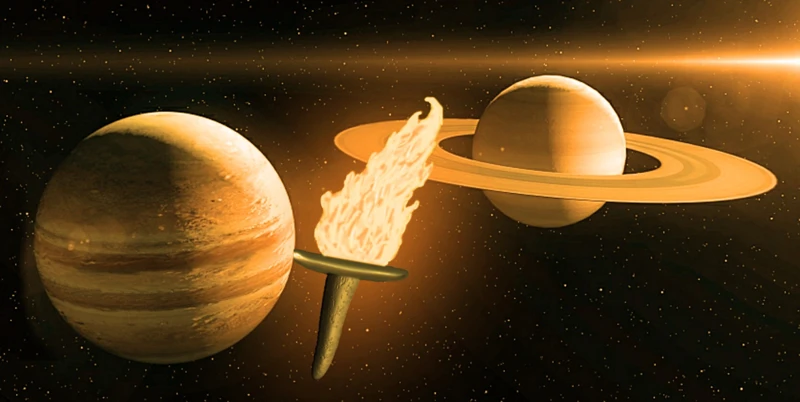
The Impact of Solar Eclipses on Societies:
Solar eclipses, the mesmerizing celestial events where the moon passes between the Earth and the Sun, have long captivated human societies throughout history. These rare occurrences have often been accompanied by a range of psychological effects on individuals and communities alike. In ancient cultures, solar eclipses were often perceived as omens or signs of impending doom, leading to widespread fear and anxiety. The sudden darkness during the daytime and the eerie atmosphere undoubtedly had a profound impact on human psychology. Even today, solar eclipses continue to evoke a sense of wonder and awe, highlighting the intricate relationship between celestial events and human perception.
The Alleged Connection between Full Moons and Human Behavior:
The influence of the moon on human behavior has been a subject of fascination and speculation across various cultures and time periods. Many believe that full moons have the potential to amplify emotions and intensify psychological states. It is a common belief that hospitals experience higher numbers of admissions during full moon periods, and anecdotal reports suggest that people may feel more restless or experience mood swings during this phase. While scientific studies have failed to provide definitive evidence for a direct connection between full moons and human behavior, the long-standing folklore surrounding this association cannot be overlooked.
Famous Events Fueled by Planetary Alignments:
Throughout history, there have been significant events that align with specific planetary alignments, sparking intrigue and a renewed belief in the influence of celestial bodies. One notable example is the alignment of the outer planets Jupiter, Saturn, and Uranus in the early 1980s. This alignment coincided with a surge of interest in spirituality and alternative belief systems, as well as advancements in technology and political shifts. The correlation between this unique alignment and the global changes taking place left many contemplating the potential links between planetary alignments and human psychology. While it is important to approach such events with a critical mindset, they serve as compelling examples of the potential interplay between celestial alignments and human experiences.
As we explore historical examples of planetary alignments and their impact on human psychology, it becomes evident that these celestial events have shaped cultural beliefs, provoked awe, and even influenced societal changes. While scientific studies continue to examine these phenomena, the rich tapestry of historical examples provides a fascinating glimpse into the enduring curiosity and fascination that humans have held towards the cosmic dance of the planets. To delve even further into the connection between planetary alignments and human psychology, let us now turn our attention to scientific studies that seek to quantify and understand this relationship.
The Impact of Solar Eclipses on Societies
The Impact of Solar Eclipses on Societies:
Solar eclipses, a celestial event that occurs when the moon passes between the Earth and the Sun, have captivated and influenced societies throughout history. These awe-inspiring phenomena have evoked a wide range of emotions, beliefs, and rituals across different cultures. In ancient times, solar eclipses were often perceived as omens or messages from the divine, leading to both fear and reverence.
1. Cultural Significance: Solar eclipses have played a significant role in cultural and religious practices. For example, in ancient China, there was a belief that eclipses were caused by a celestial dragon devouring the Sun, leading people to make loud noises and bang drums to scare away the dragon. In some Native American cultures, solar eclipses were viewed as a spiritual union between the Sun and the Moon, symbolizing the balance of opposing forces.
2. Emotional Impact: The darkening of the skies during a solar eclipse can evoke a broad range of emotions, including awe, wonder, and even fear. The sudden and temporary alteration of the natural world can create a sense of mystery and a feeling of being connected to something greater than oneself. These emotional responses, in turn, can influence human psychology, leading to introspection, contemplation, and a renewed sense of perspective.
3. Societal Effects: Solar eclipses have also had practical effects on societies. In ancient times, during a solar eclipse, activities would often come to a halt as people were in awe of the celestial event. Scientific advancements, such as the discovery of the corona during an eclipse, have been made possible due to the unique opportunities solar eclipses provide for studying the Sun and its atmosphere.
While the impact of solar eclipses is largely subjective, the psychological and societal effects cannot be denied. From ancient civilizations to modern-day societies, these cosmic occurrences continue to inspire wonder and reflection. The next section will explore another celestial phenomenon that has long been associated with human behavior— the alleged connection between full moons and human behavior. It is intriguing to examine how the position of celestial bodies can shape and influence the human psyche.
The Alleged Connection between Full Moons and Human Behavior
The Alleged Connection between Full Moons and Human Behavior:
Throughout history, an enduring belief persists regarding the influence of full moons on human behavior. While scientific evidence may be limited, many people subscribe to the idea that full moons have a profound impact on our emotions and actions. Common anecdotes and folklore often associate full moons with increased levels of emotional intensity, erratic behavior, and even heightened incidents of accidents or crime. Some theories suggest that the gravitational pull of the moon’s alignment with the Earth affects the water content within our bodies, including the brain, potentially leading to fluctuations in mood and behavior. While skeptics argue that these claims are mere superstition or coincidence, others point to studies that have attempted to find correlations between the lunar cycle and various aspects of human behavior. While the scientific consensus remains inconclusive, the fascination with the alleged connection between full moons and human behavior continues to captivate the collective imagination. Whether it’s embracing the mystical influence of the moon or seeking scientific explanations, exploring this topic provides an intriguing glimpse into the complexities of human psychology and our eternal fascination with celestial phenomena.
[Anchor: astrology elements compatibility]
Famous Events Fueled by Planetary Alignments
Famous Events Fueled by Planetary Alignments:
Throughout history, there have been several notable events that are believed to have been influenced by the alignments of celestial bodies. These occurrences have captivated the imagination of both astrologers and historians alike. One such event is the French Revolution, which took place during a period of intense astrological activity. Astrologers argue that the alignment of Uranus, the planet of rebellion and innovation, with Pluto, the harbinger of power and transformation, set the stage for the upheaval and social unrest that followed. This alignment is said to have symbolized the breaking down of established structures and the birth of a new era. Another famous event believed to have been fueled by planetary alignments is the moon landing in 1969. The alignment of multiple celestial bodies, including the moon, Earth, and other planets, played a crucial role in the success of this historic endeavor. The alignment provided the necessary gravitational forces and trajectories required for the spacecraft to reach the moon and return safely to Earth. These examples demonstrate the potential impact that planetary alignments can have on monumental events that shape the course of history.
Whether these connections are mere coincidences or have a deeper cosmic significance is a matter of interpretation. Skeptics argue that attributing cause and effect solely to planetary alignments oversimplifies the complexity of historical events, disregarding the multitude of social, political, and economic factors at play. Nonetheless, the influence of planetary alignments on famous events continues to fuel fascination and curiosity among those who seek to understand the interplay between the celestial and the human realm.
As we delve further into the intricacies of planetary alignments and their impact on human psychology, it is important to explore both the historical and scientific dimensions of this topic. The next sections will examine scientific studies on the subject, discuss the influence of planetary alignments on astrological signs, and delve into the potential psychological effects of these alignments. So, let’s continue our journey into the realms where celestial forces and human behavior intertwine.
Scientific Studies on Planetary Alignments and Human Psychology
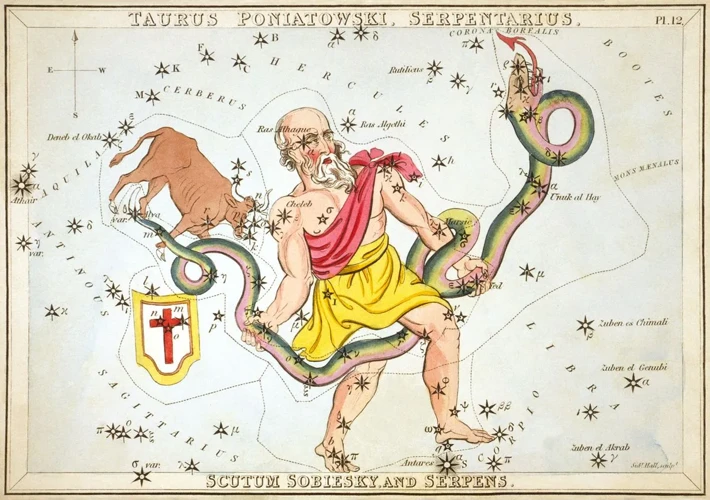
Quantifying the Connection through Statistical Analysis:
Scientific studies have sought to explore the potential relationship between planetary alignments and human psychology. Researchers have used statistical analysis to analyze large sets of data, aiming to uncover any significant correlations between celestial events and psychological variances. One such study examined the impact of planetary alignments on mood and behavior by analyzing survey data collected from thousands of participants over an extended period. The results suggested a modest but statistically significant association between certain celestial events and changes in emotional well-being. However, it is important to note that this type of research has its limitations, as establishing a direct cause-and-effect relationship between planetary alignments and human psychology remains a complex challenge.
The Role of Geomagnetic Activity in Psychological Variances:
In addition to the statistical analysis, scientific investigations have looked into the potential role of geomagnetic activity in the relationship between planetary alignments and human psychology. Geomagnetic activity refers to changes in the Earth’s magnetic field, which can be influenced by solar flares and other celestial events. Some researchers propose that these changes in geomagnetic activity may have subtle effects on human brain activity and neural functioning, thus impacting psychological states and behavior. While the precise mechanisms are still under investigation, preliminary studies have suggested a correlation between geomagnetic activity and certain psychological variables, such as changes in sleep patterns, anxiety levels, and even social behavior.
Although scientific studies on the relationship between planetary alignments and human psychology are ongoing, it is crucial to approach the findings with a critical and open mind. Skeptics argue that any perceived correlations may be attributed to psychological biases or random coincidences. On the other hand, proponents believe that science has only scratched the surface of understanding the intricate connections between celestial events and human psychology. As research continues to evolve, further advancements may shed light on the underlying mechanisms and provide a deeper understanding of the potential impact of planetary alignments on human behavior and cognition.
To explore more about the role of astrological elements in individual relationships and compatibility, you can read our article on astrology elements compatibility. Additionally, if you’re interested in understanding the scientific classification of asteroids, visit our article on science of asteroid classification.
Quantifying the Connection through Statistical Analysis
Quantifying the Connection through Statistical Analysis:
To explore the relationship between planetary alignments and human psychology, numerous scientific studies have been conducted using statistical analysis. Researchers have sought to examine whether there is a measurable correlation between celestial events and psychological phenomena. One such study focused on the impact of lunar cycles on human behavior. By collecting data from various sources, including hospital records and police reports, researchers analyzed patterns and trends in human activity during different lunar phases. While the results were not universally conclusive, some studies indicated a slight increase in certain behaviors, such as emergency room visits or crime rates, during the full moon. However, it is crucial to note that these findings are still debated among scientists due to limitations in study design and inconsistent results across different locations and cultures.
Additionally, researchers have explored the potential influence of geomagnetic activity on psychological variances. Geomagnetic activity refers to changes in the Earth’s magnetic field caused by solar flares and other solar events. Some studies have suggested a connection between increased geomagnetic activity and shifts in human mood, behavior, and even sleep patterns. However, establishing a direct cause-and-effect relationship between geomagnetic activity and human psychology remains challenging due to the complexity of external factors involved.
While statistical analysis offers valuable insights into the relationship between planetary alignments and human psychology, it is essential to approach the findings with caution. Correlations do not always indicate causation, and more comprehensive, controlled studies are needed to establish a clear and definitive link. Nonetheless, these scientific endeavors contribute to the ongoing exploration of the dynamic interplay between celestial events and the complexities of the human mind.
The Role of Geomagnetic Activity in Psychological Variances
The Role of Geomagnetic Activity in Psychological Variances:
One intriguing aspect of the relationship between planetary alignments and human psychology lies in the role of geomagnetic activity. Geomagnetic activity refers to the variations in Earth’s magnetic field caused by solar activity and other factors. Scientific studies have explored the potential connection between these variations and their impact on human behavior and mental states.
Research suggests that increased levels of geomagnetic activity can influence psychological variables such as mood, well-being, and cognitive performance. For example, studies have found correlations between high levels of geomagnetic activity and increased aggression, anxiety, and depression. Conversely, lower geomagnetic activity levels have been associated with reduced stress and improved overall psychological well-being.
The exact mechanisms behind these effects are not yet fully understood. One hypothesis is that geomagnetic activity may influence the production and release of neurotransmitters in the brain, such as serotonin and melatonin, which play a crucial role in regulating mood and sleep patterns. Another theory suggests that geomagnetic activity may affect the electrical activity in the brain, altering brainwave patterns and influencing cognitive processes.
While the relationship between geomagnetic activity and psychological variances is still a topic of ongoing research, the findings highlight the potential impact of Earth’s magnetic field on human psychology. It adds another layer of complexity to the influence of planetary alignments on our mental and emotional states.
So, as we continue to explore the intriguing realm of planetary alignments and their impact on human psychology, the role of geomagnetic activity serves as a reminder that the connections between celestial phenomena and our internal experiences are far from simple. The next section will delve deeper into the specific effects of celestial alignments on individual zodiac signs and the influence of retrograde planets on personality traits.
Planetary Alignments and Astrological Signs
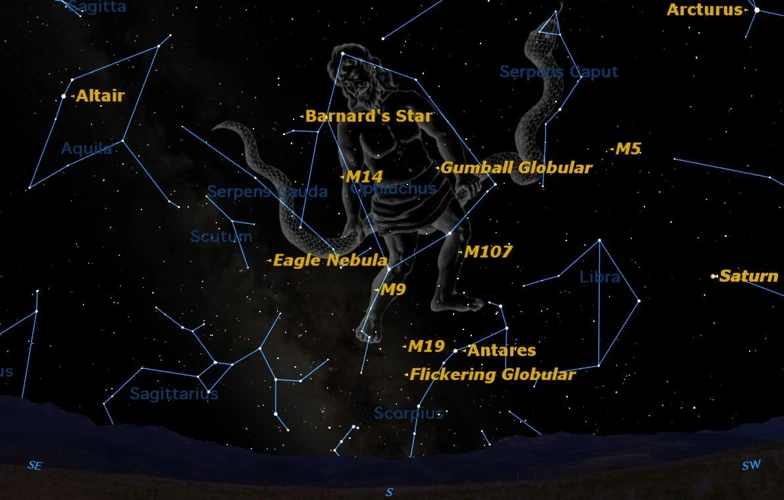
Individual Zodiac Sign Compatibility and Celestial Alignments:
Astrological signs are deeply intertwined with planetary alignments, and understanding their compatibility can shed light on the influence of celestial events on human psychology. Each zodiac sign is ruled by specific planets that govern their traits and characteristics. By examining the alignment of these ruling planets, astrologers can assess compatibility between different signs. For example, individuals born under the zodiac sign of Taurus are ruled by Venus, the planet associated with love and sensuality. Taurus individuals may experience a strong connection and compatibility with those born under the sign of Libra, also ruled by Venus. On the other hand, signs that are ruled by conflicting or opposing planets may experience challenges in understanding one another. For instance, the fiery planet Mars rules Aries and the peaceful planet Venus rules Libra, creating a contrasting dynamic between the two signs. Astrologers believe that these planetary alignments can influence the compatibility and connection between individuals, offering insights into the intricacies of human relationships.
The Influence of Retrograde Planets on Personality Traits:
Retrograde motion is another fascinating aspect of planetary alignments that holds significance in astrology and its connection to human psychology. When a planet is in retrograde, it appears to be moving backward in its orbit from our perspective on Earth. In astrological terms, retrograde planets are believed to have a profound impact on individuals’ personality traits and behaviors. Retrograde periods are associated with introspection, reflection, and inner growth. For example, when Mercury, the planet of communication, goes into retrograde, people often experience challenges in expressing themselves clearly and may encounter miscommunications. This phenomenon can lead to heightened self-awareness and the need for introspection. Similarly, when the deep and transformative planet Pluto goes into retrograde, individuals may experience a profound internal transformation and a desire to delve into their own depths. The influence of retrograde planets on personality traits highlights the intricate connection between celestial alignments and human psychology.
As we explore the complex relationship between planetary alignments and astrological signs, we begin to uncover the subtle interplay of celestial forces on human behavior and relationships. By considering the ruling planets of each zodiac sign and the influence of retrograde motion, astrologers can delve deeper into the nuances of compatibility and individual personality traits. Whether one looks to the stars for guidance or seeks to understand the underlying psychological mechanisms, the connection between planetary alignments and astrological signs offers a unique perspective on human nature. So, let us dive further into this captivating realm where the celestial dance shapes our lives and personalities.
Individual Zodiac Sign Compatibility and Celestial Alignments
Individual Zodiac Sign Compatibility and Celestial Alignments:
When it comes to relationships and compatibility, astrology offers a fascinating framework for understanding the dynamics between individuals based on their zodiac signs. Each sign is associated with specific personality traits and characteristics, which are believed to be influenced by the celestial alignments at the time of their birth. By examining the compatibility between different zodiac signs, astrologers can provide insights into the potential challenges and harmonies that may arise in relationships.
For instance, a water sign like Cancer, ruled by the moon, is often considered compatible with earth signs like Taurus and Virgo, who provide stability and grounding. On the other hand, a fire sign like Aries, influenced by the fiery energy of Mars, may clash with water signs due to their contrasting nature. Additionally, the positions of planets at the time of birth, such as Venus for love and Mercury for communication, play a crucial role in understanding compatibility.
Celestial alignments not only influence the individual traits of each zodiac sign but also affect the dynamics between different signs. For example, a conjunction or alignment between the sun and moon can create a sense of harmony and balance, making individuals more compatible with each other. Conversely, oppositions or square alignments can bring about challenges and conflicts between zodiac signs.
It’s important to note that while astrology offers insights into compatibility, it is not the sole determining factor in relationships. Personal experiences, communication, and individual growth also play significant roles. However, understanding the influence of celestial alignments on zodiac sign compatibility can provide a unique perspective on the dynamics between individuals and potentially enhance self-awareness and relationship insight.
To explore more about zodiac sign compatibility and celestial alignments, you can click here for a comprehensive guide on the subject. Understanding the intricate connection between astrology, planetary alignments, and individual compatibility can add depth and nuance to our understanding of human relationships.
The Influence of Retrograde Planets on Personality Traits
The Influence of Retrograde Planets on Personality Traits:
In astrology, retrograde motion occurs when a planet appears to move backward in its orbit from our perspective on Earth. While it is simply an optical illusion, retrograde planets hold significant meaning in astrological interpretations. This phenomenon is believed to have a profound influence on personality traits and behavior patterns. When a planet goes into retrograde, its energy is said to be intensified and internalized. This can lead to internal reflection, reevaluation, and a need to revisit unresolved issues related to the planet’s domain.
For example, when Mercury, the planet of communication and intellectual pursuits, goes into retrograde, it is often associated with miscommunication, technological glitches, and delays in decision-making. People may experience challenges expressing themselves clearly or encounter disruptions in their daily routines. This retrograde period is believed to prompt individuals to reflect on their communication style, adaptability, and how they process information. It can be a time for self-reflection and self-improvement in areas related to Mercury’s influence.
Similarly, when Mars, the planet associated with action, passion, and conflict, goes into retrograde, it can bring about a shift in energy. The assertive and forward-moving nature of Mars becomes introspective and subdued during this period. Individuals may experience a decrease in motivation, confrontations, or a need to reevaluate their goals and desires. It is a time for reassessing one’s strategies, asserting boundaries, and redirecting energy in a more focused manner.
Retrograde motion of other planets, such as Venus, Jupiter, or Saturn, can also impact personality traits depending on their respective astrological associations. These retrograde periods invite individuals to delve deeper into the areas of life influenced by these planets and make necessary adjustments and changes.
It is important to note that the influence of retrograde planets on personality traits varies depending on an individual’s natal chart and the aspects formed with other planets. Astrologers consider these factors while interpreting retrograde effects on an individual basis.
Understanding the influence of retrograde planets on personality traits provides further insight into the complexities of astrology. It highlights the significance of timing and the ever-changing celestial energies that impact human psychology. Whether one embraces astrology wholeheartedly or approaches it with skepticism, the concept of retrograde planets offers a fascinating lens through which to explore the intricate interplay between celestial phenomena and human behavior.
Conclusion

In conclusion, the relationship between planetary alignments and human psychology is a fascinating and complex subject that bridges the realms of astrology, cosmic events, and individual experiences. While skeptics may dismiss the influence of celestial bodies, many individuals find personal meaning and resonance in the effects of planetary alignments on their emotions, intuition, and decision-making. Whether through astrology or scientific research, there is a growing understanding of the profound impact that celestial events can have on human behavior and cognition. Historical examples, such as the societal effects of solar eclipses and the alleged connection between full moons and human behavior, provide intriguing insights into the influence of planetary alignments throughout history. Scientific studies, including statistical analysis and the role of geomagnetic activity, shed light on the quantifiable aspects of this relationship. Additionally, the influence of planetary alignments on astrological signs adds another layer of complexity to the exploration of individual compatibility and personality traits. As we continue to unlock the mysteries of the universe and delve deeper into the fascinating realm of human psychology, the relationship between planetary alignments and our understanding of ourselves is sure to remain a captivating subject of study and inquiry.
Frequently Asked Questions

FAQs About the Relationship Between Planetary Alignments and Human Psychology
1. How does astrology explain the influence of planetary alignments on human behavior?
Astrology suggests that the positions and movements of celestial bodies at the time of a person’s birth can influence their personality traits and behaviors.
2. Is there scientific evidence supporting the connection between planetary alignments and human psychology?
While astrology is often considered a pseudoscience, there is ongoing scientific research exploring the potential correlations between celestial events and human behavior.
3. Can planetary alignments affect our emotions?
Yes, certain planetary alignments can intensify emotions and increase emotional sensitivity during those periods.
4. What are the potential psychological effects of planetary alignments?
Planetary alignments can enhance intuition and psychic abilities, influence decision-making and communication, and even contribute to emotional turbulence.
5. Are there historical examples of planetary alignments impacting societies?
Yes, solar eclipses have been recorded as powerful events that have influenced societies throughout history, often instilling a sense of awe and fear.
6. Is there a connection between full moons and human behavior?
While the belief in a full moon’s impact on human behavior is widespread, scientific studies have yet to establish a conclusive link between the two.
7. Have planetary alignments played a role in famous events?
Some believe that alignments of celestial bodies have influenced significant occurrences like wars, political shifts, and even artistic movements.
8. Can statistical analysis quantify the connection between planetary alignments and human psychology?
Researchers have attempted to analyze data to find statistical correlations between celestial events and human behavior, although results vary.
9. Does geomagnetic activity play a role in the variance of human psychology during planetary alignments?
Some studies suggest a connection between increased geomagnetic activity during certain alignments and changes in human mood, behavior, and even reported paranormal experiences.
10. How does planetary alignment affect individual Zodiac sign compatibility?
Certain celestial alignments can enhance or challenge compatibility between different Zodiac signs, often resulting in intense interactions or transformative relationships.
References
Frequently Asked Questions

1. How do planetary alignments affect human psychology?
Planetary alignments have been observed to influence human psychology in various ways, such as affecting emotional states, enhancing intuition and psychic abilities, and influencing decision-making and communication.
2. Does astrology have a scientific basis for explaining human behavior?
The scientific basis of astrology is still a topic of debate. While some studies suggest correlations between astrological signs and personality traits, more research is needed to establish a concrete scientific explanation for the influence of astrology on human behavior.
3. Can planetary alignments make people more emotionally sensitive?
Yes, during periods of planetary alignments, individuals may experience heightened emotional sensitivity. The alignment of planets can create energetic shifts that affect emotional states and can lead to increased sensitivity and emotional responsiveness.
4. Do planetary alignments enhance one’s intuition and psychic abilities?
There are anecdotal accounts and personal experiences that suggest planetary alignments can enhance intuition and psychic abilities. Some individuals claim to have heightened intuition and psychic experiences during alignment periods.
5. How do planetary alignments influence decision-making and communication?
Planetary alignments are believed to influence decision-making and communication by creating shifts in energy and consciousness. These shifts can affect cognitive processes and interpersonal communication, leading to changes in decision-making patterns and communication styles.
6. What has been the impact of solar eclipses on societies throughout history?
Solar eclipses have had significant impacts on societies throughout history. They have been associated with fear, awe, and even religious or spiritual significance. Eclipses have inspired cultural myths, rituals, and art, reflecting the profound influence of celestial events on human psychology.
7. Is there a connection between full moons and human behavior?
While cultural beliefs and anecdotes often suggest a connection between full moons and human behavior, scientific studies have not consistently found a significant correlation. However, some studies have reported slight increases in certain behaviors during full moon periods, but further research is needed to establish a conclusive link.
8. Can famous events be attributed to planetary alignments?
Some individuals believe that famous events, such as political or social movements, are fueled by planetary alignments. However, it is important to note that correlation does not necessarily imply causation, and attributing events solely to planetary alignments requires thorough analysis and evidence.
9. Are there scientific studies supporting the connection between planetary alignments and human psychology?
Scientific studies have explored the connection between planetary alignments and human psychology. Some studies have used statistical analysis to identify correlations, while others have investigated the role of geomagnetic activity in psychological variances. However, the scientific consensus on the extent of this connection is still evolving.
10. How do retrograde planets influence personality traits?
In astrology, retrograde planets are believed to have an influence on personality traits. Retrograde motion symbolizes introspection and reflection, potentially impacting an individual’s self-awareness and introspective tendencies. However, the influence of retrograde planets on personality traits is a subject of ongoing debate and exploration.

